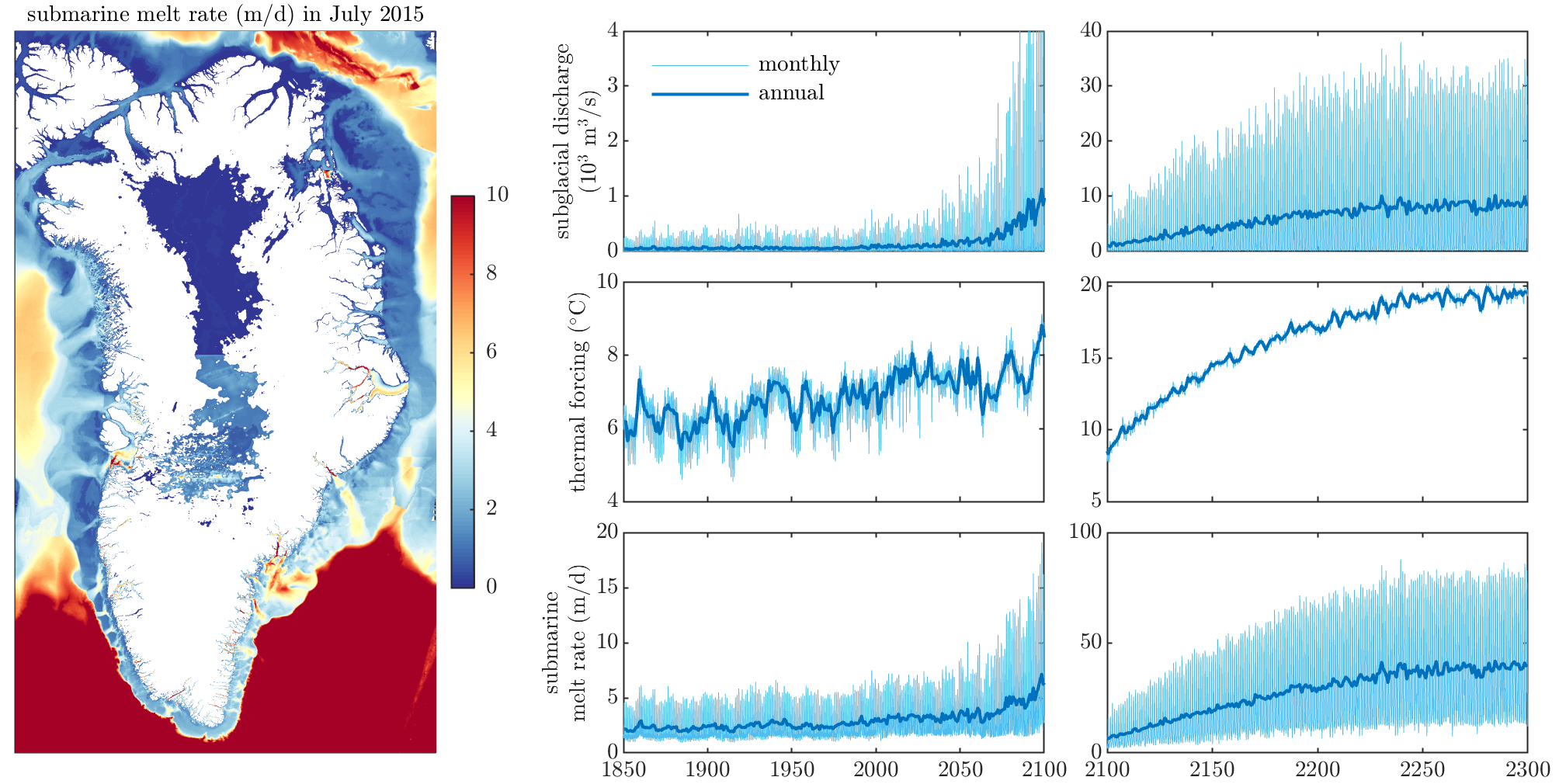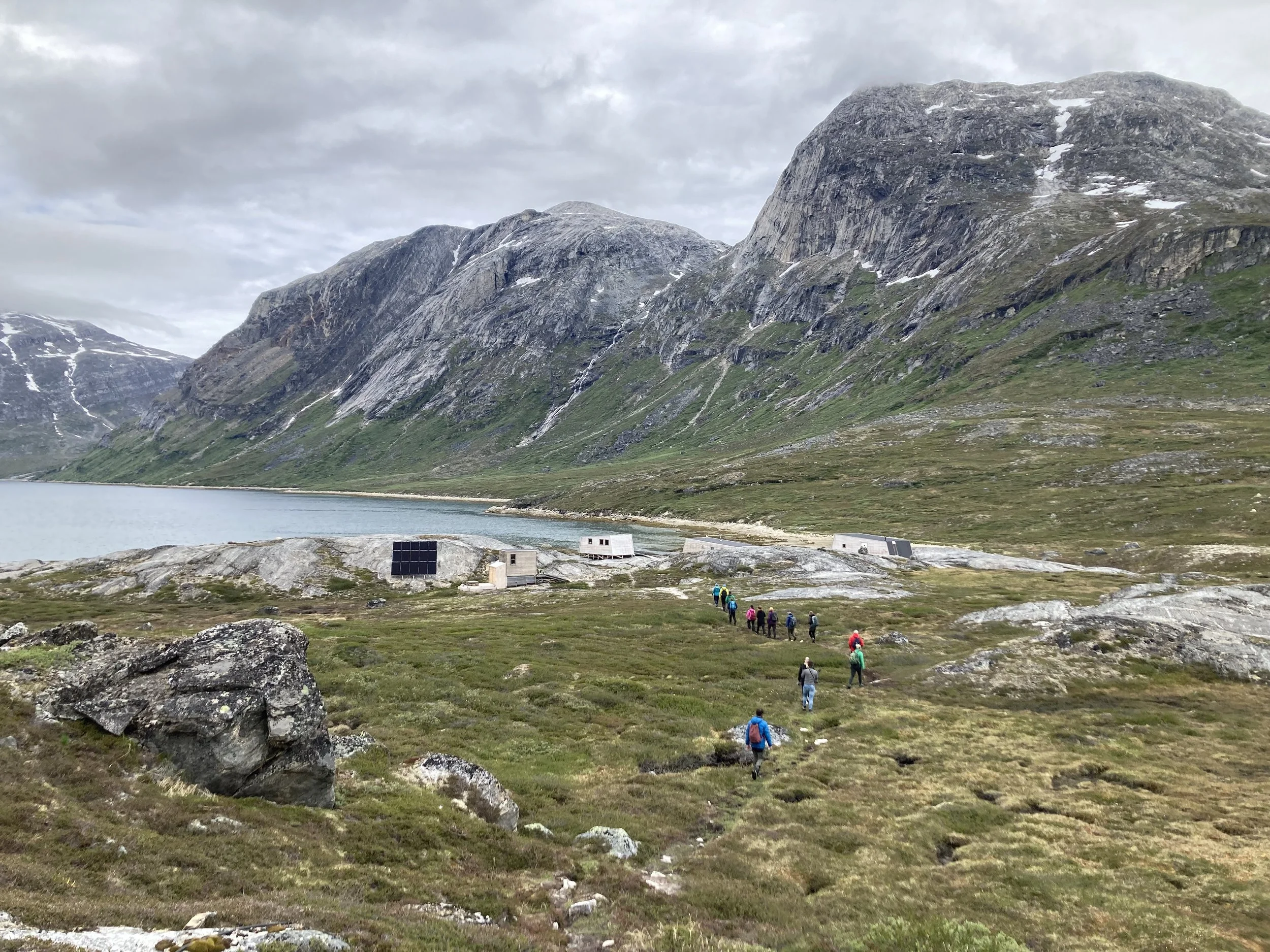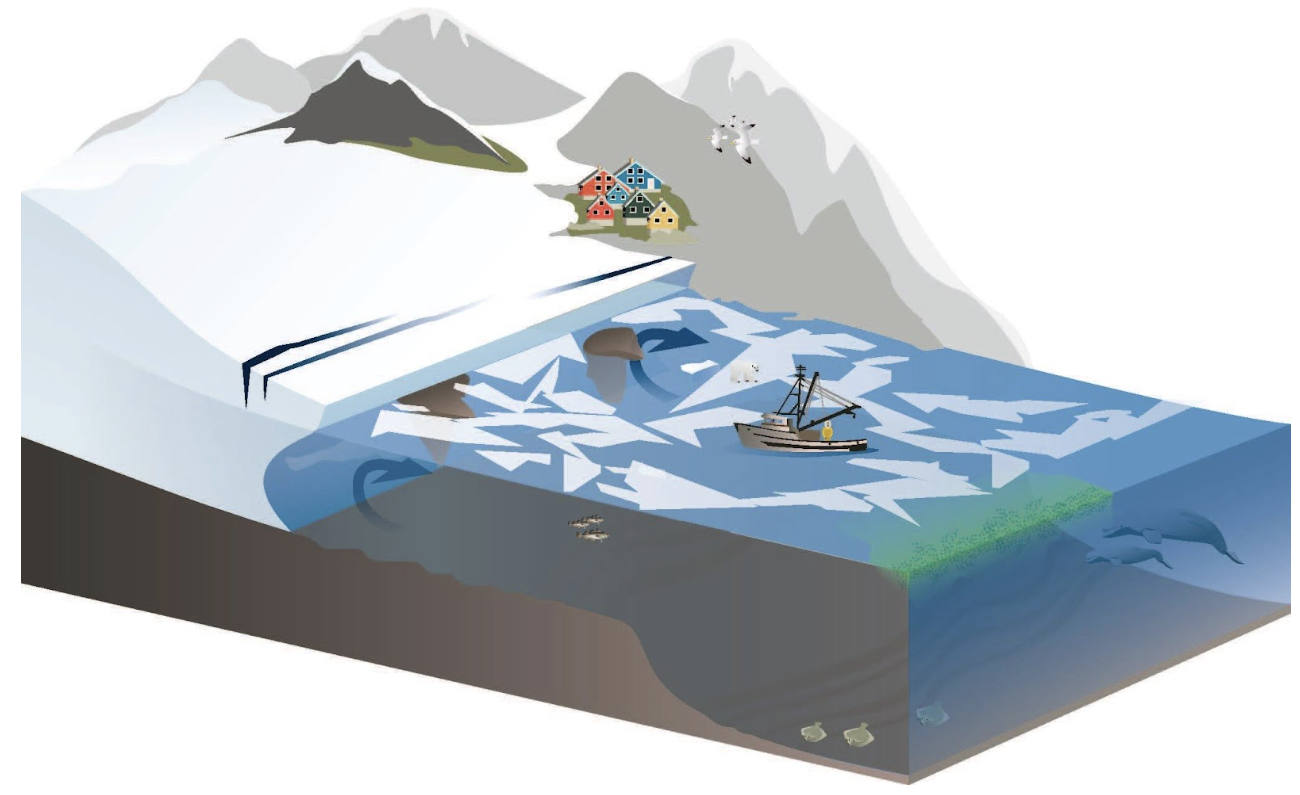greenland ice sheet to atlantic tipping points (giant)
2025-2030; funding: ARIA
GIANT is a large, British Antarctic Survey led project that seeks to understand the potential climate tipping point of the interaction between the Greenland Ice Sheet and the North Atlantic Ocean. The project will undertake field seasons in North and East Greenland and remote sensing together with modelling approaches that range from small-scale ice-adjacent turbulence, up through fjord-scale modelling and ultimately global climate modelling in UKESM. My role is to use the observations and other modelling approaches to improve FjordRPM (which represents a further development of the FjordMIX project - see below) and to support the building of FjordRPM into UKESM so that the UK global climate model can represent Greenland’s fjords.
ice sheet model intercomparison project 7 (ISMIP7)
2025-2029; funding: Heising simons foundation
Projected subglacial discharge, ocean thermal forcing and submarine melt based on the climate model CESM2-WACCM in an ssp585 scenario, for all of Greenland in July 2015 (left map), and for 1850-2300 Sermilik Fjord, SE Greenland (right timeseries).
The Ice Sheet Model Intercomparison Project is a large international collaboration that seeks to make projections of future sea level contributions from Greenland and Antarctica. The project contains several focus groups that work to enable researchers worldwide to run computer simulations of the future of ice sheets. I co-lead the Greenland ocean focus group, whose task is to generate the ocean boundary conditions that Greenland Ice Sheet models need to run projections. This project funds a postdoc in Edinburgh.
NEXT GENERATION PROJECTIONS OF SEA LEVEL CONTRIBUTION AND FRESHWATER EXPORT FROM THE GREENLAND ICE SHEET
2021-2026; Funding: ukRI NERC independent research fellowship
Ocean temperature and submarine melting of Greenland’s marine-terminating glaciers [figure source]
My research fellowship centres on the processes controlling the interaction between the ocean and the Greenland Ice Sheet. Given the dramatic changes at Greenland’s marine-terminating glaciers in recent decades, and projected future ocean warming, understanding such processes is vitally important if we are to accurately project the contribution of the ice sheet to sea level, and provide the scientific input that is required to make the best sea level adaptation and mitigation decisions.
Together with collaborators from the UK, USA, Denmark and Belgium, this project will use a range of observations and idealised models to better understanding ice-ocean processes and to better represent these processes in large-scale models.
FJORD DYNAMICS AND MODULATION OF ICE-OCEAN EXCHANGE (FJORDMIX)
2022-2027; funding: ukRI NERC standard grant
Together with researchers at the University of St Andrews and the Scottish Association for Marine Science (SAMS), FjordMIX seeks to advance our understanding of Greenland fjord processes through the development of a novel fjord-modelling framework and its application on an ice-sheet wide scale. In particular, FjordMIX aims to (i) Provide the first systematic, Greenland-wide assessment of fjord dynamics and their role in modulating the exchange of heat and freshwater between the ice sheet and ocean; (ii) Evaluate how this has changed historically, and will continue to evolve through the 21st Century; (iii) Assess the impacts of this modulation on ice sheet mass loss and regional ocean circulation. The project funds a postdoctoral researcher at each of Edinburgh, St Andrews and SAMS.
The first version of the model is now published and available on Zenodo or Github.
GREENLAND ICE SHEET-OCEAN SCIENCE NETWORK (GRISO)
2020-2025; funding: us NSF accelnet
GRISO summer school in Nuuk, Greenland, 11-22 July 2022
Joint GRISO-ACDC summer school in Qeqertarsuaq, Greenland, 21 August-1 September, 2023
GRISO is an international, multidisciplinary network of scientists interested in advancing collective understanding of problems related to Greenland ice sheet change, and its interaction with the ocean, the atmosphere, the marine ecosystems and local communities. As part of this effort, I sit on the steering committee and have led two summer schools in Greenland involving a total of 30 postgraduate students and early postdocs. The first took place in summer 2022 in Nuuk with the topic “Impacts of glacier retreat on Greenland’s coastal margins”. The second was in collaboration with the Advanced Climate Dynamics Courses (University of Bergen) and took place in summer 2023 in Qeqertarsuaq with the topic “Past and Future Changes in Greenland Climate”. The third and fourth were held in Nuuk in the summers of 2024 and 2025.
greenland ice sheet evolution and stability (GREASE)
2021-2025; funding: RESEARCH COUNCIL OF NORWAY
Together with researchers from the Norwegian Research Centre (NORCE) in Bergen I am working on a project (GREASE) seeking to improve past and future simulations of the Greenland Ice Sheet.
The project has two primary objectives: (1) To determine upper bounds for rates of sea-level contribution from the Greenland ice sheet until 2050, 2100 and 2150 using novel model projections, initialised from historical simulations that reproduce observed mass changes; and (2) To constrain climate change trajectories that lead to a stabilisation of the Greenland ice sheet by 2500.
My role is to improve the representation of ice-ocean interactions - including submarine melt and calving - in the ice sheet simulations.
Projected 21st century Greenland Ice Sheet ensemble-mean thinning (left) and ensemble standard deviation (right) [figure source]
Global changes, local impacts: Study of glacial fjords, ecosystems and communities in Greenland
2022-2026; funding: US NSF navigating the new arctic
Greenland’s glacial fjord systems play host to oceanic, atmospheric, glacial, ecological and human influences [figure source]
Fieldwork in Sermilik Fjord, SE Greenland, August 2023
In collaboration with researchers from Scripps Institution of Oceanography, the University of Oregon, Dartmouth College, Oregon State University, Bigelow Laboratory for Ocean Sciences and the Greenland Institute of Natural Resources, this project seeks to understand the intersecting forces within Greenland’s glacial fjord systems while involving perspectives from Greenlandic researchers and communities. With field seasons in south-east Greenland (2023 & 2025) and north-west Greenland (2024 & 2026) we aim to understand how large-scale oceanic, atmospheric, ecological and societal variability interact with, and manifest at, the local/community scale.








